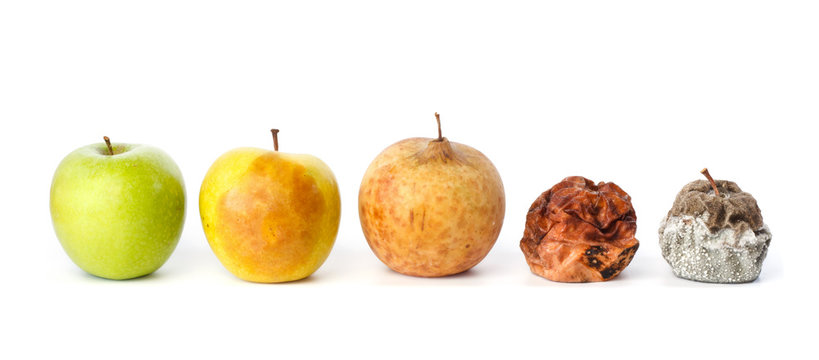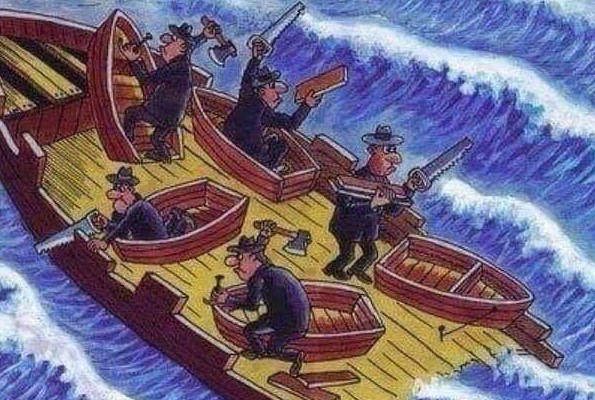

The subject of learning is critical to humanity and indeed everything that has life. Much has been said about this subject and it is impossible to exhaust it because it is at the core of growth and development for all creatures. Every living thing, learns one way or the other.
Someone said, if we stop learning, we stop living. I do agree with this. Another person said that the day we stop learning is the day we cease to live. Again, this thought resonates with me. If we have a specific understanding of what learning truly is, we should do a great job of deliberately ensuring that learning happens in our space as often as possible. A specific understanding is opposed to the generic classification we accord learning. In the latter, we run the risk of lack of accountability and responsibility.
Learning is not just about reading and writing because there are people who cannot read and write but have attained learning. Learning is not limited to just studying, which is a farther step from reading. Learning is therefore beyond reading, writing, studying, taking notes and meditating on the content that we encounter. Though learning entails all of these, it is not exhaustive. What then is exhaustive or holistic learning?
Learning leads to a change in behaviour. Learning has everything to do with doing or getting things done. This means putting instincts, intuition and knowledge to work in very practical ways such that knowledge is applied and directed at the solving of problems.
In such a scenario, there is bound to be a positive change in behaviour. Unless there is behavioural change, we cannot say that learning has happened. The thrust of learning is that it brings about positive change, and transforms situations from negative to affirmative through practically providing solutions to problems. There has to be a physical engagement to manifest the gut.
Thus, true learners earn beyond acquiring the concept of specific knowledge. True learners use the knowledge of the concept to effect change. True learners, by doing, earn understanding and are accounted wise in the process. You cannot claim to know a subject or concept enough until you have done it well more than twice. Then you can be said to understand it. This is the wisdom by which creativity transits to innovation. Between the interstices, there is a huge gap of work laced with failures and mistakes.
The journey from creativity to innovation is an enervating one. It is the reason many do not innovate. It is not because they have or had no ideas. It is more a question of how ideas become innovation through execution. What is the purpose of an idea that is not executed? This query is more than a critical one.
To make ideas come alive is to make potential actual. This is the journey from conception to completion. For creativity to become innovation, we need to document our ideas. We need to think of needs required. We have to think in terms of resources. Depending on the sort of innovation, we must think in terms of the factors of production: Land, Labour, Capital and Organization, and how to productively organize them.
This is the key of entrepreneurship, leadership and management to produce value. Resources and requirements are put together to achieve a great product or service. There are different stages of the execution of the process and it takes a lot of troubleshooting, trials, errors, rising and falling before what was envisioned is brought alive. And even at that, it is subject to continuous improvement and updates. This is a process of learning. Learning is a productive process.
The story of how Josh Hoffman of the Art of Chutzpah plunged himself into starting his IZZY online streaming [entertainment] TV is an inspiring one of great possibilities despite the difficulty of discouragement even from people he venerated. In Josh Hoffman's words, In February 2020, I started building my TV streaming company IZZY. The truth is, I had no idea how I was going to build it, or acquire enough programming to support its growth. But I believed in the vision — to enhance the world's relationship with Israel through remarkable entertainment and experiences — so I started telling people in my social circles to collect initial feedback about the concept.
Josh says, It starts with your mindset, with being a possibletarian, with understanding that your "I can" is better than your "IQ" or your "I am." This is how the art of learning is transacted and manifested. It is a transaction that begins in the gut and concluded for all to see and benefit from.
This is exactly what learning is. Today, that brand Josh built out of the negative projections of people around him is worth $6 million with subscribers from over 50 countries around the world. True learning pushes you beyond the realm of impossibilities because your mind tells you that your vision is possible. It is a compelling vision. Josh Hoffman ventured into uncertainty and produced value. That is what learning is.
Vladim Kotelnikov said: If you stop learning, you stop creating history, and become history. Is history created by just reading? Can history be created if we do not put knowledge encountered or acquired towards the noble task of changing mindsets? Is history created without feeding and impregnating the minds of specific audiences? Can we make history without first getting people to conceive ideas in their minds and then getting them to activate action to further their cause? Is this not the only way that posterity will be reminded of their antecedents?
History will remember you because you will live in the minds of men many years long after you have exited the stage. That way you do not become history. You remain engraved in the minds of people many years after you have passed. You become a legacy because you made learning happen. You created something for people to ruminate on and live by each day.
You may have sang a song or many songs. You may have written a book or many books. You may have come up with an engineering feat. It could have been an architectural input. You have done something to immortalize your name. You have imprinted your footsteps in the sands of time and so you can never be forgotten by men.
Think of the great names in the history of the world today: Isaac Newton, Albert Einstein, the great philosophers, great inventors, great writers, and the greatest name to have walked the earth, Jesus Christ, the Author of Life. These made impact on the world through what they created. They made things happen. They brought about learning. They could not have done so by staying in the zone of comfort. They changed the narrative of humanity forever by disrupting mindsets and thinking. They did cause major positive shift in the human space.
Ironically, it is interesting that men could make learning happen through the creation of negative values and ideas. It could be religion, it could be through wars, it could be through infamous acts of whatever twist or magnitude. Though these could be termed negative, it takes darkness to be able to appreciate the inestimable value of light and to tell the difference apart.
What happens when we stop learning is the same as saying what happens when we stop being innovative? What happens when we stop engaging our minds in productive ventures? What happens when we stop solving the problems of society? When we stop learning, we stop being relevant. An education that lacks relevance to the society where it is deployed is not a functional one. Such a society rots and cankers. It gets relegated to the background.
Members of such a society cease from being creative and productive thinkers. They stop being problem solvers. By being more predominantly consumerist, they become less productive or manufacturing. Such a society lives in peril and shall soon feed on itself. Such a society breeds cannibals.
Really, when we stop learning, we stop doing. We stop thinking, we stop being creative, we stop being of value to others, we stop taking risks, we cease from exercising our guts and we indeed go inert and extinct while yet living physically.
We become like the proverbial living dead referenced by the Author of Life. Is it truly possible to stop learning? The answer is in the affirmative. Not a few people are not really learning because they are not meaningfully engaged and productive. This runs counter to the art of fulfillment.




